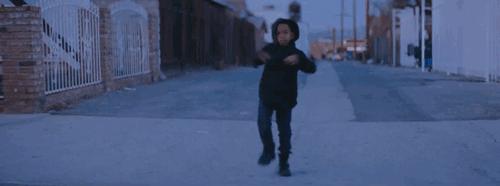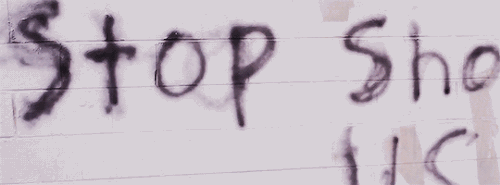
Beyoncé's Support of Black Power
While Saturday Night Live satirically states that Formation was the day, "Beyoncé turned Black," hilarious as it might the skit might be, Lemonade was one of the first instances where Beyoncé confronted racism at the forefront. While many of the references are obvious, Beyoncé cinematic choices directly relate to black history, the current #BlackLivesMatter movement, and the future for the black community in America.
The video above comes directly from Beyoncé's song Don't Hurt Yourself. This song made me, and probably any girl, feel badass. But, this quote above has a more latent meaning. The repeated quote in the video is straightforward, and it highlighted how black women are marginalized and unappreciated in society today. However, the voices hold more weight than the message—Malcolm X was the voice. Yet, again, Beyoncé curated a quote from a person with specific roots in black culture and history. Beyoncé chose a quote from an activist that the black community would readily recognize. While most people would be able to associate “I have a dream,” with Martin Luther King Jr., Beyoncé chose an uncommon quote from Malcolm X to better connect to a narrower audience of black people. Her choice of quotes was curated with such precision and intent. Bey was not just picking voices; she was picking voices that would speak to specific demographics.
There were other cinematic instances where there are references that are used to speak to the black community. Beyoncé also included a video of a young black boy break dancing in front of a brigade of police and then flashed to a graffitied wall that says, “stop shooting us.” This clearly shows that Beyoncé was pleading to end police shootings, but she included “stop shooting us,” for much more than just the idea. The phrase holds extreme gravity in the Black Lives Matter Movement, and it has become an integral “logo.” While the messages reaches a wide audience, the connotation of “stop shooting us” speaks specifically to the activists in the Black Lives Matter Movement.


Finally, in the song Forward, which reaches just over a minute in length, Beyoncé incorporated capturing moments to incite social change. The video highlighted several mothers with stone-cold faces holding pictures of what appears to be there sons. On the surface, these were just pictures of black mothers holding pictures of black men. These were not just any mothers; they were the mothers of Trayvon Martin, Eric Garner, and Michael Brown.
These sons were killed by police brutality, and have incited the development of the Black Lives Matter movement. These are faces that many members of the black community can easily recognize. Their injustices have fueled a far-reaching movement to change the culture revolving around black marginalization in America. Along with her co-musician, James Black, in this song, he sings,
“Forward, it’s time to fight, forward, now we’re gonna hold doors open forward.”

Black and Beyoncé begged for steps “forward” to change this devastating reoccurrence of police shootings. By including these deceased men and their mothers, Beyoncé acknowledged the devastating grief that families feel from unfair, deliberate police shootings of black men. However, if a viewer did not know who the pictures of these men were, the gravity of the song would be lost. Beyoncé spoke to her community, and empathized with struggles that affect the viewers that she specifically wanted to reach out to in this song.
Beyoncé does not shy away from the topic of black marginalization throughout Lemonade. This analysis was made to highlight her precise decisions when she curated this audio-visual album. Beyoncé wanted to speak to the people fighting for black power and show that she is on her side supporting them. Since Beyoncé does not make many public statements and appearances, Lemonade became a way for her to show her alignment and solidarity with her communities. Beyoncé holds up two middle fingers to the racism that inflicts countless people in this country, and her songs provide a beacon of hope to the communities affected. Beyoncé wasn't just speaking to a general audience, she was speaking to the people who want to change the current climate of police brutality and make this country safer for minorities.